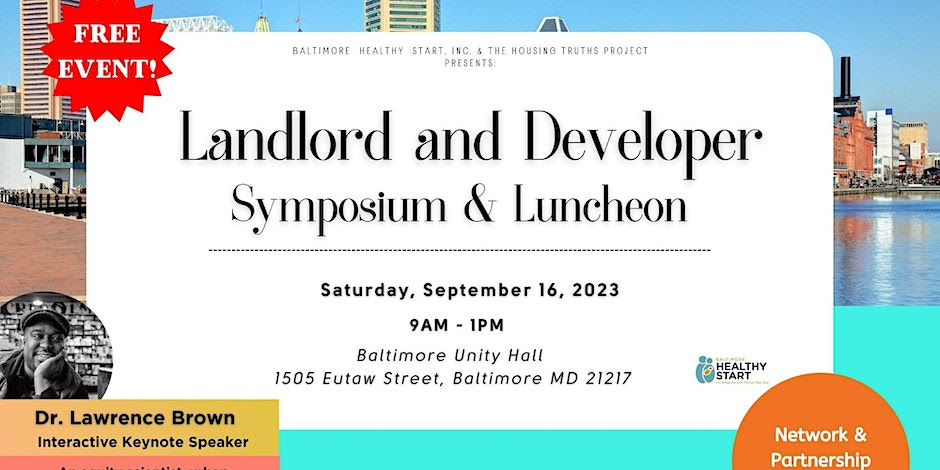Next Wednesday, September 20th: HPRP's Speaker Series!
On September 20th, you are invited to attend the Homeless Persons Representation Project (HPRP)'s kickoff of their 2023-2024 speaker series. Speaking will be University of Baltimore School of Law Professor Daniel Hatcher, Esq., and he will discuss his new book, Injustice, Inc.: How America's Justice System Commodifies Children and the Poor (University of California Press, 2023).
When: Wednesday, September 20th, 5:30 - 7:30 PM
Where: Enoch Pratt Central Library (400 Cathedral St., Baltimore, MD 21201), Wheeler Auditorium
This talk will be moderated by Youth Action Board Co-Chair Levy Johnson and Jenny Egan, Esq., Chief Attorney for the Juvenile Division of the Public Defender in Baltimore and co-founder of the Baltimore Action Legal Team.
This event is free, but registration is encouraged. Given the COVID-19 surge, masking is strongly encouraged and this event will be recorded for those unable to attend.
Here is a summary of the speaker's book:
From UC Press: "Injustice, Inc. exposes the ways in which justice systems exploit America's history of racial and economic inequality to generate revenue on a massive scale. With searing legal analysis, Daniel L. Hatcher uncovers how courts, prosecutors, police, probation departments, and detention facilities are abandoning ethics to churn vulnerable children and adults into unconstitutional factory-like operations. Hatcher reveals stark details of revenue schemes and reflects on the systemic racialized harm of the injustice enterprise.
"He details how these corporatized institutions enter contracts to make money removing children from their homes, extort fines and fees, collaborate with debt collectors, seize property, incentivize arrests and evictions, enforce unpaid child labor, maximize occupancy in detention and "treatment" centers, and more. Injustice, Inc. underscores the need to unravel these predatory operations, which have escaped public scrutiny for too long."
*****
Source: Homeless Persons Representation Project email, September 13, 2023.







